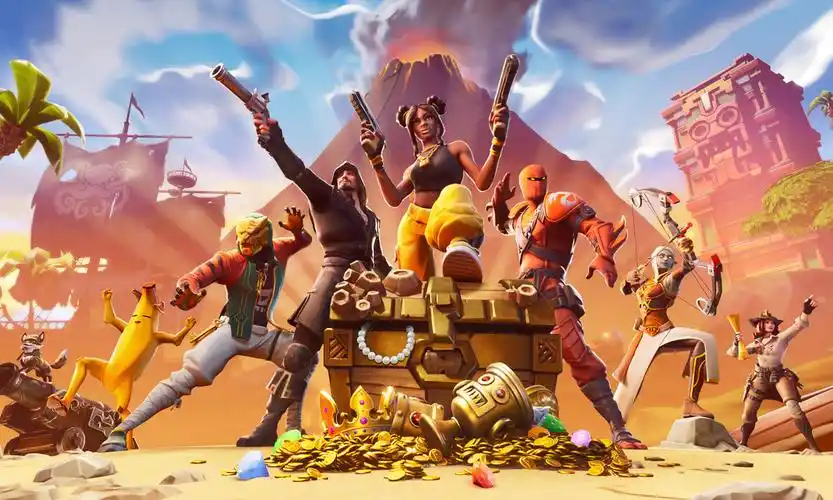The Metamorphosis: Unpacking the Most Significant Changes in Recent Deep Game News
The video game industry is a relentless tide of innovation, speculation, and seismic shifts. Just when one believes the landscape has settled, a new wave of announcements, acquisitions, and technological breakthroughs reshapes the shoreline. The recent months have been particularly transformative, marked not by incremental updates, but by fundamental changes to the very fabric of how games are made, sold, and played. This article delves into the most significant developments, analyzing their profound implications for developers and players alike.
The Unraveling of the Consolidation Dream: Xbox's Multi-Platform Pivot
Perhaps the most earth-shattering news came from Microsoft, a company that spent the better part of a decade and nearly $80 billion acquiring studios like Bethesda and Activision Blizzard to build an impenetrable "content moat" for its Xbox ecosystem. The strategy was clear: exclusive, must-play titles would drive console sales and Game Pass subscriptions.
However, recent reports and confirmations have turned this strategy on its head. The announcement that previously exclusive titles like Sea of Thieves, Grounded, Hi-Fi Rush, and even the rumored port of the monumental Starfield to competing platforms like PlayStation 5 signifies a monumental strategic pivot. This is far more significant than a few one-off ports; it represents a fundamental redefinition of Xbox's identity.
What does this mean? Microsoft is seemingly prioritizing software and service revenue over hardware supremacy. The goal is no longer to "win" the console war in terms of units sold but to make Game Pass and its first-party titles ubiquitous across every possible screen. This shift acknowledges the stagnant growth of the console market and the expansive potential of reaching hundreds of millions of players on rival platforms. For players, it means greater access and choice, potentially breaking down the "walled gardens" that have defined console generations. For the industry, it challenges the long-held doctrine of exclusivity as the primary driver of platform competition.
The Generative AI Revolution: A New Tool or a Threat?
Beyond business maneuvers, a technological revolution is brewing within development studios. Generative AI has moved from a buzzword to a tangible, and highly controversial, tool in game development. Recent news from NVIDIA's release of powerful new AI-driven animation and texture tools, and the integration of generative AI in engines like Unity and Unreal, promises to drastically alter the development process.
Proponents argue that AI can democratize game development, allowing smaller teams to achieve levels of detail and scale previously reserved for AAA studios. It can automate tedious tasks like generating dialogue for non-playable characters (NPCs), creating vast, varied landscapes, or coding routine functions, freeing human creators to focus on core vision, storytelling, and innovative gameplay mechanics.
However, the ethical and practical implications are profound. The industry is grappling with serious concerns:
- Job Displacement: Will AI replace concept artists, writers, voice actors, and QA testers?
- Legal and Ethical Grey Areas: Most generative AI models are trained on existing, human-created data, often without explicit permission or compensation for the original creators. This raises massive copyright and ownership questions.
- The "Soul" of a Game: Can procedurally generated content ever replicate the nuanced, intentional design of a human artist? There is a palpable fear of games becoming homogenized and losing their unique creative spirit.
This shift is not a distant future concept; it's happening now, forcing a urgent debate about the soul of creativity and the economic future of game development.
The "Live Service" Reckoning and the Single-Player Resurgence
The past few years saw every major publisher chasing the "games-as-a-service" (GaaS) model, lured by the potential for recurring revenue from battle passes, cosmetics, and seasonal content. However, recent high-profile failures have triggered a significant market correction.
The rapid shutdown of Suicide Squad: Kill the Justice League despite its massive budget and beloved IP, following similar struggles for titles like Babylon's Fall, has sent a clear message: the live-service market is oversaturated and incredibly risky. Players are becoming more discerning, unwilling to invest time and money into products that feel cynical or lacking a compelling core loop.
Conversely, this has led to a powerful resurgence of confidence in high-quality, narrative-driven, single-player experiences. The staggering success of Baldur's Gate 3, a turn-based, story-rich RPG with no microtransactions, proved that there is a massive, hungry audience for complete, polished experiences. Similarly, the critical and commercial triumph of Final Fantasy VII Rebirth reinforces that blockbuster, single-player adventures are not just viable but can be platform-defining events.
This recalibration is a healthy development. It encourages publishers to bet on diverse projects—both live-service and single-player—based on their inherent strengths rather than blindly following a trend. It empowers developers to play to their strengths and, most importantly, gives players a wider variety of genuine experiences to choose from.

The Engine Wars: Unity's Self-Inflicted Wound and Unreal's Dominance
The tools used to create games are just as crucial as the business models. In a stunning misstep, Unity Technologies announced a new "runtime fee" last year that would have charged developers per game installation. The immediate, universal, and furious backlash from studios of all sizes was a watershed moment. The proposal threatened to bankrupt successful indie developers and demonstrated a profound disconnect between Unity's leadership and its user base.
Though Unity quickly walked back the policy, the damage to developer trust was catastrophic. Many studios announced they were halting development on Unity and migrating their projects to other engines, primarily Unreal Engine 5 or open-source alternatives like Godot.
This event cemented Unreal Engine 5's position as the industry's premier engine for high-end development. Its powerful toolset, including the revolutionary Nanite virtualized geometry and Lumen global illumination systems, was already attracting major studios. Unity's blunder accelerated this shift, potentially creating a less competitive engine landscape in the AAA space for years to come. It was a stark reminder that in an industry built on trust and partnership, even the most established platforms are vulnerable.
Conclusion: A Crossroads of Change
The recent deep game news paints a picture of an industry at a crossroads. The paradigms of exclusivity, creation, monetization, and development tools are all being challenged simultaneously. We are moving toward a future that is more platform-agnostic, technologically complex, ethically fraught, and diversely monetized. For players, this promises more choice and access than ever before. For developers, it presents a landscape filled with both unprecedented opportunity and significant new challenges. One thing is certain: the only constant in the game industry is change, and its current pace is truly breathtaking.














